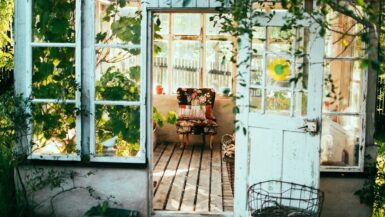Nestled in the heart of Prague, the Wallenstein Garden is a hidden gem that offers a tranquil escape from the bustling city streets. Located in the Lesser Town district, this historic garden is a testament to the grandeur and beauty of Renaissance architecture and design. With its meticulously manicured lawns, elegant fountains, and stunning sculptures, Wallenstein Garden is a must-visit destination for both locals and tourists alike.
In this article, we will get into the rich history of Wallenstein Garden and Palace, explore its architectural and design features, marvel at its landscaping elements, discover the diverse flora and fauna that call this garden home, admire its collection of art and sculptures, and learn about the various events and activities that take place within its grounds. Whether you are a history buff, an art enthusiast, or simply seeking a peaceful retreat in the heart of Prague, Wallenstein Garden has something to offer everyone.
Principaux enseignements
- Wallenstein Garden is a beautiful and historic garden located in Prague.
- The garden and palace have a rich history dating back to the 17th century.
- The architecture and design of the garden are impressive, featuring Baroque and Renaissance styles.
- The garden boasts many landscaping features, including fountains, ponds, and a grotto.
- Visitors can enjoy a variety of flora and fauna, as well as art and sculptures throughout the garden.
History of Wallenstein Garden and Palace
The history of Wallenstein Garden dates back to the early 17th century when it was commissioned by Albrecht von Wallenstein, a prominent military leader and nobleman. The garden was originally designed as part of Wallenstein Palace, which served as his residence. Built between 1623 and 1630, the palace was a symbol of Wallenstein’s wealth and power.
However, Wallenstein’s reign was short-lived. In 1634, he was assassinated by his own men due to suspicions of treason. Following his death, the palace changed hands several times before eventually falling into disrepair. It wasn’t until the early 20th century that the garden was restored to its former glory.
Today, Wallenstein Garden is owned by the Czech Senate and is open to the public. It stands as a testament to Prague’s rich history and serves as a reminder of the city’s architectural and cultural heritage.
Architecture and Design of Wallenstein Garden
The architecture and design of Wallenstein Garden are a harmonious blend of Renaissance and Baroque styles. The garden is laid out in a symmetrical pattern, with a central axis leading from the entrance gate to the palace. This axis is flanked by meticulously manicured lawns, hedges, and flower beds, creating a sense of order and balance.
The palace itself is a masterpiece of architectural design. Its façade features intricate carvings and ornate decorations, showcasing the skill and craftsmanship of the artisans who worked on its construction. The interior of the palace is equally impressive, with grand halls, opulent furnishings, and stunning frescoes adorning the walls and ceilings.
Landscaping Features of Wallenstein Garden
One of the highlights of Wallenstein Garden is its landscaping features. The garden boasts several fountains, ponds, and water features that add to its serene and tranquil atmosphere. The most famous of these is the Sala Terrena, a stunning Baroque-style loggia that overlooks a large pond filled with koi fish.
The garden also incorporates elements of symmetry and balance in its design. The pathways are laid out in a geometric pattern, leading visitors on a journey through the various sections of the garden. The use of hedges, flower beds, and topiaries further enhances this sense of order and harmony.
Flora and Fauna of Wallenstein Garden
Wallenstein Garden is home to a diverse range of plant and animal species. The garden boasts an impressive collection of trees, including rare species such as the Ginkgo biloba and the Japanese pagoda tree. Flower beds burst with vibrant colors throughout the year, with tulips, roses, and daffodils adding to the garden’s beauty.
In addition to its flora, Wallenstein Garden is also a haven for wildlife. The pond is home to a variety of fish, including the famous koi fish that have become a symbol of the garden. Birds such as swans, ducks, and peacocks can also be spotted roaming the grounds, adding to the garden’s enchanting atmosphere.
The garden plays an important role in preserving local biodiversity. It serves as a sanctuary for many plant and animal species that are native to the region, providing them with a safe and protected habitat.
Art and Sculptures in Wallenstein Garden

Wallenstein Garden is not only a feast for the eyes in terms of its architecture and landscaping, but it is also home to a remarkable collection of art and sculptures. Throughout the garden, visitors will find statues depicting mythological figures, historical figures, and various animals.
One of the most famous sculptures in the garden is the Sala Terrena’s bronze statue of Hercules fighting the Hydra. This larger-than-life sculpture is a testament to the skill and artistry of its creator. Other notable sculptures include the Fountain of Venus, which depicts the Roman goddess of love, and the Fountain of Neptune, which portrays the god of the sea.
These sculptures not only add to the aesthetic appeal of Wallenstein Garden but also serve as a reminder of Prague’s rich cultural heritage.
Events and Activities in Wallenstein Garden
Throughout the year, Wallenstein Garden plays host to a variety of events and activities that cater to different interests and age groups. From music concerts and theater performances to art exhibitions and workshops, there is always something happening within the garden’s grounds.
One of the most popular events is the Summer Shakespeare Festival, which takes place in July and August. This annual festival brings together theater companies from around the world to perform Shakespearean plays in an open-air setting. The combination of stunning performances and the enchanting backdrop of Wallenstein Garden creates a truly magical experience for theater enthusiasts.
In addition to cultural events, Wallenstein Garden also offers activities for families and children. The garden’s playgrounds and picnic areas provide a perfect setting for a day of fun and relaxation.
Tips for Visiting Wallenstein Garden
If you are planning a visit to Wallenstein Garden, here are a few tips to help you make the most of your experience:
1. Best Times to Visit: The garden is open year-round, but the best time to visit is during the spring and summer months when the flowers are in full bloom. The garden can get crowded during weekends and holidays, so try to visit on weekdays if possible.
2. What to Bring: Be sure to bring comfortable walking shoes, as there is a lot of ground to cover. It is also a good idea to bring sunscreen, a hat, and a bottle of water, especially during the summer months when the sun can be intense.
3. Accessibility: The garden is wheelchair accessible, with ramps and paved pathways throughout. However, some areas may have uneven terrain, so it is advisable to check with the staff if you have any specific accessibility requirements.
4. Amenities: Wallenstein Garden has public restrooms and a small café where you can grab a snack or a cup of coffee.
Reviews and Feedback from Visitors
Visitors to Wallenstein Garden have consistently praised its beauty, tranquility, and historical significance. Many have commented on the well-maintained grounds and the attention to detail in the garden’s design. The sculptures and artwork have also received high praise for their artistic merit and cultural significance.
Common themes in visitor feedback include the peaceful atmosphere of the garden, the stunning architecture of the palace, and the variety of events and activities on offer. Visitors often describe their experience as magical and recommend Wallenstein Garden as a must-visit destination in Prague.
Why Wallenstein Garden is a Must-Visit in Prague
In conclusion, Wallenstein Garden is a hidden oasis in the heart of Prague that offers a unique blend of history, art, and natural beauty. From its rich history and stunning architecture to its meticulously manicured lawns and diverse flora and fauna, the garden is a testament to Prague’s cultural heritage.
Whether you are a history buff, an art enthusiast, or simply seeking a peaceful retreat, Wallenstein Garden has something to offer everyone. Its collection of sculptures and artwork, combined with the variety of events and activities that take place within its grounds, make it a cultural hub in Prague.
So, why not plan a visit to Wallenstein Garden and experience its beauty for yourself? Lose yourself in the tranquility of the garden, marvel at its architectural wonders, and immerse yourself in the rich history and culture of Prague.
If you’re interested in learning more about the history of Prague and its significance, check out this fascinating article on Czech Out Prague. The article titled “Throwback Clip: BBC Cameraman Catches Prague Right Before ’68 Invasion” provides a unique glimpse into the city’s past. It offers a rare perspective on Prague just before the invasion, capturing the essence of the city and its people. Click here to read the article and delve deeper into Prague’s rich history.
FAQs
What is Wallenstein Garden?
Wallenstein Garden is a Baroque garden located in the Lesser Town of Prague, Czech Republic. It was built in the 17th century by Albrecht von Wallenstein, a military commander and politician.
What are the opening hours of Wallenstein Garden?
Wallenstein Garden is open daily from 10:00 AM to 6:00 PM, except for Mondays when it is closed.
Is there an entrance fee for Wallenstein Garden?
Yes, there is an entrance fee for Wallenstein Garden. The fee is 100 CZK for adults and 50 CZK for children, students, and seniors.
What can visitors see in Wallenstein Garden?
Visitors can see various features in Wallenstein Garden, including a large pond with a fountain, a grotto, a sala terrena, and several sculptures and statues. The garden also has a peacock enclosure and a small aviary.
Is Wallenstein Garden accessible for people with disabilities?
Unfortunately, Wallenstein Garden is not fully accessible for people with disabilities. The garden has several stairs and uneven surfaces, which may make it difficult for wheelchair users or people with mobility issues to navigate.
Are pets allowed in Wallenstein Garden?
No, pets are not allowed in Wallenstein Garden, except for guide dogs for the visually impaired.




Laisser une réponse